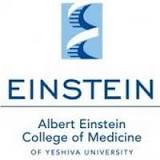eNeura SpringTMS Post-Market Observational US Study of Migraine
| Status: | Recruiting |
|---|---|
| Conditions: | Migraine Headaches |
| Therapuetic Areas: | Neurology |
| Healthy: | No |
| Age Range: | 18 - 65 |
| Updated: | 4/21/2016 |
| Start Date: | January 2015 |
| End Date: | March 2016 |
| Contact: | Cynthia Harris, BS |
| Email: | cindy@clinregconsult.com |
| Phone: | 775-392-2970 |
eNeura SpringTMS Post-Market Observational U.S. Study of Migraine
A multi-center, prospective, non-randomized, single arm, open label, post-market,
observational study to evaluate the use of the eneura, springtms system in reduction of
migraine headache symptoms.
observational study to evaluate the use of the eneura, springtms system in reduction of
migraine headache symptoms.
A prospective, non-randomized, single arm, multi-center observational study designed to
evaluate the use of the SpringTMS system in reducing the frequency of headache days.
Note: This is a NON-SIGNIFICANT RISK (NSR) study of a NON-SIGNIFICANT RISK (NSR) Device. It
is a post market study of a NSR device cleared by FDA through the 510(k) pre-market
notification process. The cleared indications for use are provided above. This NSR study is
designed to collect information on additional applications of the SpringTMS device. These
additional applications include:
1. Use of the device to evaluate the potential for regular use of sTMS to reduce the
frequency, severity, and/or duration of migraine.
2. Delivery of additional treatments (pulses) to evaluate the acute treatment efficacy of
breakthrough migraine attacks with and without aura.
evaluate the use of the SpringTMS system in reducing the frequency of headache days.
Note: This is a NON-SIGNIFICANT RISK (NSR) study of a NON-SIGNIFICANT RISK (NSR) Device. It
is a post market study of a NSR device cleared by FDA through the 510(k) pre-market
notification process. The cleared indications for use are provided above. This NSR study is
designed to collect information on additional applications of the SpringTMS device. These
additional applications include:
1. Use of the device to evaluate the potential for regular use of sTMS to reduce the
frequency, severity, and/or duration of migraine.
2. Delivery of additional treatments (pulses) to evaluate the acute treatment efficacy of
breakthrough migraine attacks with and without aura.
Inclusion Criteria:
1. Patients 18 to 65 years of age;
2. Patients able to understand and communicate in English;
3. Migraine with or without aura;
4. 4-25 headache days per month (confirmed by 1-month baseline diary, minimum of 5
complete headache-free days/month);
5. Understand and willing to provide diary and survey data.
Exclusion Criteria:
- Subjects will be excluded from participating in this trial if they meet any of the
following criteria
1. Severe co-existing disease having a life expectancy of less than 1 year;
2. Currently involved in any other investigational clinical trials that have not
completed their primary endpoint or that may interfere with the SpringTMS study
results;
3. Mental impairment or other conditions which may not allow the subject to
understand the nature, significance and scope of the study and to cooperate with
follow-up requirements;
4. Known drug and/or alcohol addiction or use of illicit substances;
5. Patients with epilepsy or history of seizure;
6. Severe active major depression or major psychiatric illness;
7. Concurrent use of other neurostimulation devices (Cefaly®, TENS, implantable
devices);
8. Use of Botox® within past 4 months;
9. Extracranial nerve block (e.g. occipital, supraorbital) within past 3 months;
10. Use of Cefaly for prevention within past month;
11. Patients with metal containing implants as follows:
The SpringTMS may not be used in patients who have metals, conductive materials, or
metal-containing implants in their head, neck or upper body. Patients with implants that
are affected by a magnetic field should not use the SpringTMS. Examples of such implants
include:
- Aneurysm clips or coils • Radioactive seeds
- Cochlear implants • Magnetically programmable shunt valves
- Cerebral spinal fluid shunts • Stents
- Bullets or pellets lodged in the head or upper body • Metal plates, screws, staples
or sutures in skull, neck, shoulders, arms or hands
- Filters • Metallic artificial heart valves
- Electrodes • Facial tattoos with metallic ink Dental implants, fillings, or other
dental appliances are okay and are not affected by the device.
Note: although not explicitly excluded, safety and effectiveness have not been established
in pregnant women. Please defer to the judgment of the investigator when considering the
eligibility of this population.
We found this trial at
8
sites
New York, New York 10025
Principal Investigator: Lawrence Newman, MD
Click here to add this to my saved trials
111 South 11th Street
Philadelphia, Pennsylvania 19107
Philadelphia, Pennsylvania 19107
Principal Investigator: Michael Marmura, MD
Phone: 215-955-2546
Click here to add this to my saved trials
1300 Morris Park Ave
Bronx, New York 10461
Bronx, New York 10461
(718) 430-2000

Principal Investigator: Matthew Robbins, MD
Albert Einstein College of Medicine The Albert Einstein College of Medicine of Yeshiva University is...
Click here to add this to my saved trials
Cleveland, Ohio 44106
Principal Investigator: Stewart Tepper, MD
Phone: 216-636-5549
Click here to add this to my saved trials
Los Angeles, California 90095
Principal Investigator: Andrew Charles, MD
Click here to add this to my saved trials
Mayo Clinic Mayo Clinic's campus in Arizona provides medical care for thousands of people from...
Click here to add this to my saved trials
Rockville, Maryland 20852
Principal Investigator: Ejaz Shamin, MD
Phone: 301-816-6378
Click here to add this to my saved trials
Stanford, California 94563
Principal Investigator: Nada Ahmad Hindiyeh, MD
Phone: 650-723-6469
Click here to add this to my saved trials
